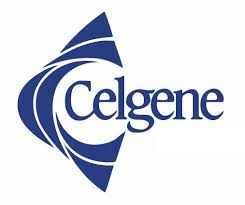New Licensed Treatment Provides Greatest Survival Improvemen?t for Sufferers of Metastatic Pancreatic Cancer

Abraxane (paclitaxel formulated as albumin bound nanoparticles; nab-paclitaxel) has been approved for use by the European Medicines Agency in combination with standard chemotherapy, gemcitabine, for the first-line treatment of adult patients with metastatic adenocarcinoma of the pancreas.
The licence has been granted as a result of pivotal trial data showing that nab-paclitaxel plus gemcitabine demonstrated a 59% increase in one-year survival (35% vs. 22%, p=0.0002) and demonstrated an increase in the rate of overall survival at 2 years (9% vs. 4%, p=0.02) compared to gemcitabine alone.2 Nab-paclitaxel is a long-awaited advance in this disease area, as survival for pancreatic cancer remains the lowest of all the major cancers in the UK.3
Professor Juan Valle, Consultant Oncologist and Honorary Professor of Medical Oncology, The Christie NHS Foundation Trust, comments: “Pancreatic cancer is one of the most difficult cancers to treat and is currently the fifth leading cause of cancer death in the UK. Despite this, treatment options remain extremely limited, with those diagnosed with advanced disease typically only surviving for 3–6 months. Nab-paclitaxel plus gemcitabine represents a significant advance in the treatment of metastatic pancreatic cancer and offers new hope in the battle against this intractable disease.”
The granting of the licence for nab-paclitaxel in combination with gemcitabine is based on the strength of data from the MPACT (Metastatic Pancreatic Adenocarcinoma Clinical Trial) study. Results from the study were published last year in the New England Journal of Medicine, which showed that nab-paclitaxel, in combination with gemcitabine, demonstrated an increase in overall survival when compared to gemcitabine alone [(8.5 months vs. 6.7 months respectively) (HR 0.72; P=0.001)].2
Updated results were presented recently during the American Society of Clinical Oncology Gastrointestinal Cancer (ASCO GI) Symposium in San Francisco, which affirmed that nab-paclitaxel, in combination with gemcitabine, demonstrated an even greater improvement in overall survival when compared to gemcitabine alone [(8.7 months vs. 6.6 months respectively)4 (HR 0.72; P=0.0001)].4
Nab-paclitaxel plus gemcitabine demonstrated a statistically significant improvement in key secondary endpoints compared to gemcitabine alone, including a 31% reduction in the risk of progression or death with a median progression-free survival (PFS) of 5.5 vs. 3.7 months (HR 0.69; P=0.001) and an overall response rate (ORR) of 23% compared to 7% (response rate ratio of 3.19; P=<0.001). Another endpoint assessed included time to treatment failure, which was significantly improved with the nab-paclitaxel combination compared to gemcitabine alone [(median 5.1 vs. 3.6 months) (HR 0.70; P=<0.001)].2
The most common grade ≥3 treatment-related adverse events in the study for nab-paclitaxel plus gemcitabine vs. gemcitabine alone were neutropenia (38% vs. 27%), fatigue (17% vs. 7%), peripheral neuropathy (17% vs. 1%), leukopenia (31% vs. 16%), thrombocytopenia (13% vs. 9%) and anemia (13% vs. 12%). Fatal events were reported in 4% of patients in each arm.2
More than 8500 people are diagnosed with pancreatic cancer in the UK each year and tragically, around 80%
of patients are diagnosed once the cancer has already reached an advanced stage, when a cure is no longer an option.5,6 A recent report published by the All-Party Parliamentary Group on Pancreatic Cancer states that pancreatic cancer is expected to overtake breast cancer as the fourth most common cause of cancer death by 2030.7
Sam Pearce, Vice President and General Manager, Celgene UK & Ireland, comments: “Celgene is committed to ensuring that pancreatic cancer patients can access Abraxane as soon as possible. We will be submitting an application to the Cancer Drugs Fund today [5 February 2014], for review on the 6 March, to ensure that eligible patients in England with this devastating disease can access this treatment in advance of a NICE appraisal later this year. Time is of the essence for these patients, so it is critical that funding is in place to enable eligible patients to benefit from this treatment.”
References
1. Celgene data on file. January 2014.
2. www.nejm.org/doi/full/10.1056/NEJMoa1304369#t=abstract Accessed December 2013.
3. www.ons.gov.uk/ons/dcp171778_283644.pdf
4. Goldstein D et al. Updated survival from a randomized phase III trial (MPACT) of nab-paclitaxel plus gemcitabine versus gemcitabine alone for patients (pts) with metastatic adenocarcinoma of the pancreas. American Society for Clinical Oncology Gastrointestinal Cancer Symposium (ASCO GI). Oral presentation. January 2014.
5. The Lancet Oncology. Gemcitabine-based or capecitabine-based chemoradiotherapy for locally advanced pancreatic cancer. 14(4): 317–326.
6. www.pancreaticcancer.org.uk/media/100292/report_final_for_web.pdf
7. All-Party Parliamentary Group on Pancreatic Cancer. Inquiry Report. Published November 2013.
8. http:/./pancreaticcanceraction.org/pancreatic-cancer/about/prognosis-survival/
9. www.cancerresearchuk.org/cancerhelp/type/pancreatic-cancer/treatment/statistics-and-outlook-for- pancreatic-cancer
10. www.ema.europa.eu/docs/en_GB/document_library/EPAR_- _Product_Information/human/000778/WC500020435.pdf Accessed January 2014
Related News
-
News Patients vs Pharma – who will the Inflation Reduction Act affect the most?
The Inflation Reduction Act brought in by the Biden administration in 2022 aims to give better and more equitable access to healthcare in the USA. However, pharma companies are now concerned about the other potential costs of such legislation. -
News CPHI Podcast Series: What does the changing US Pharma market mean for industry and patients alike?
In this week's episode of the CPHI Podcast Series Lucy Chard, Digital Editor for CPHI Online is joined by James Manser to discuss the political and market changes in the US pharma field. -
News CPHI Barcelona Annual Report illuminates industry trends for 2024
The CPHI Annual Survey comes into it’s 7th year to report on the predicted trends for 2024. Over 250 pharma executives were asked 35 questions, with their answers informing the industry landscape for the next year, spanning all major pharma marke... -
News Which 10 drugs are open to price negotiation with Medicare in the USA?
The Centres for Medicare & Medicaid Services, under the Biden administration in the USA, has released a list of the 10 drugs that will be open to price negotiations as part of the new legislation under the Inflation Reduction Act (IRA). -
News EU Medical Devices Regulation causes unintended disappearances of medical devices for children, doctors state
Doctor groups and associations have appealed to the EU to correct the EU Medical Devices Regulation law that may cause unintended shortages of essential drug and medical devices for children and rare disease patients. -
News 10 Major Drug Approvals So Far in 2023
Last year, 37 novel drugs were approved by the FDA, this was a high number for such a category, and covered many fields including oncology, demonstrating how promising further research is, and how it is only continuing to build. To date, there are alre... -
News Detecting Alzheimer's disease with a simple lateral flow test
A novel rapid diagnostic test for early-stage Alzheimer's disease has been developed using a biomarker binder from Aptamer Group along with technology from Neuro-Bio, the neurodegenerative disease experts. -
News CPHI Podcast Series: outsourcing and manufacturing trends
Listen to the CPHI Podcast Series this June to hear Gil Roth of the PBOA speak with Digital Editor Lucy Chard about the biggest trends and topics to watch in pharma outsourcing and manufacturing at the minute.
Position your company at the heart of the global Pharma industry with a CPHI Online membership
-
Your products and solutions visible to thousands of visitors within the largest Pharma marketplace
-
Generate high-quality, engaged leads for your business, all year round
-
Promote your business as the industry’s thought-leader by hosting your reports, brochures and videos within your profile
-
Your company’s profile boosted at all participating CPHI events
-
An easy-to-use platform with a detailed dashboard showing your leads and performance







